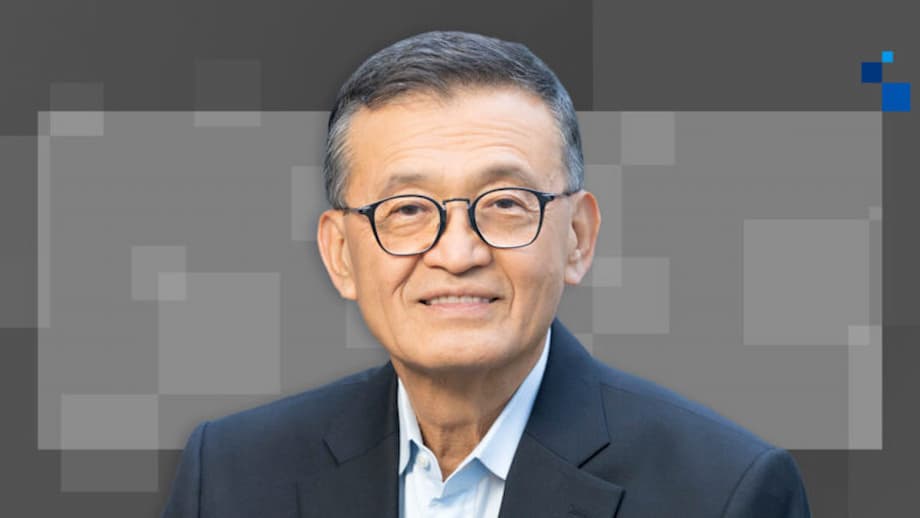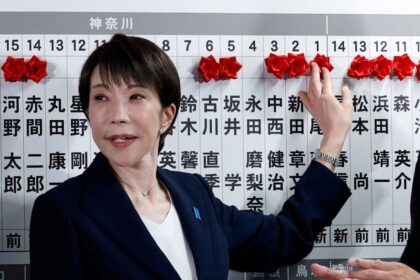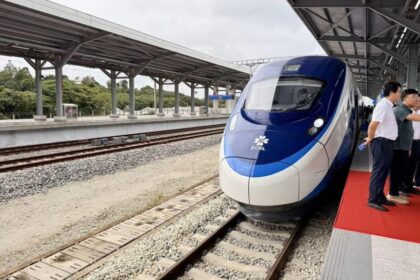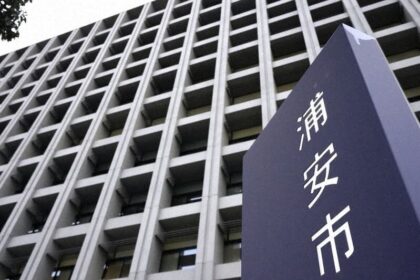Trump’s Unprecedented Call: Why Intel’s CEO Is Under Fire
In a dramatic escalation of tensions between the White House and the American technology sector, U.S. President Donald Trump has publicly demanded the resignation of Intel CEO Lip-Bu Tan. The controversy centers on Tan’s extensive business ties to China, including investments in hundreds of Chinese technology firms—some allegedly linked to the Chinese military—and his leadership of a company recently convicted of violating U.S. export controls. The episode has sent shockwaves through the semiconductor industry, raising questions about national security, corporate governance, and the future of America’s chipmaking ambitions.
- Trump’s Unprecedented Call: Why Intel’s CEO Is Under Fire
- Who Is Lip-Bu Tan? The ‘Godfather’ of Chips
- The Cadence Scandal: Export Violations and Legal Fallout
- Intel and Tan Respond: Defiance and Damage Control
- National Security, Politics, and the Semiconductor Race
- Broader Implications: The Global Tech Cold War
- In Summary
Trump’s demand, delivered via his Truth Social platform, was blunt:
The CEO of INTEL is highly CONFLICTED and must resign, immediately. There is no other solution to this problem!
The call came just hours after Republican Senator Tom Cotton sent a letter to Intel’s board chair, raising concerns about Tan’s suitability to lead a company so critical to U.S. defense and economic interests.
Who Is Lip-Bu Tan? The ‘Godfather’ of Chips
Lip-Bu Tan is a towering figure in the global semiconductor industry. Born in Malaysia, raised in Singapore, and now a naturalized U.S. citizen, Tan is known as the “Godfather of the chip industry.” Over a four-decade career, he founded Walden International, a venture capital firm that invested heavily in both Silicon Valley and China’s burgeoning tech sector. Tan’s reputation for building bridges across continents made him a sought-after leader, culminating in his appointment as Intel’s CEO in March 2025.
Tan’s track record includes a long stint as CEO of Cadence Design Systems, a leading provider of electronic design automation software. He is credited with helping to build China’s chip industry, supporting both major manufacturers and niche players through hundreds of investments. When Intel named him CEO, the company’s stock surged 13% as investors bet on his ability to engineer a turnaround at the struggling U.S. chip giant.
Why Are Tan’s China Ties Controversial?
What once seemed like a global business success story has become a political liability. As U.S.-China relations have soured, Washington has imposed sweeping restrictions on technology exports to China, citing national security risks. Investments that were once routine are now viewed with suspicion, especially when they involve companies linked to the Chinese military or government.
According to investigations by Reuters and Fortune, Tan—through Walden International and related entities—invested at least $200 million in over 600 Chinese firms between 2012 and 2024. Some of these companies are contractors for the People’s Liberation Army (PLA) or are otherwise tied to China’s military-industrial complex. Walden International is also a joint owner in several investment funds with Chinese state-owned enterprises, including China Electronics Corporation (CEC), a military supplier blacklisted by the U.S. government.
While there is no law prohibiting Americans from investing in most Chinese firms, the Pentagon bars companies with military ties from the U.S. defense supply chain. Intel, as the only U.S.-based manufacturer of the most advanced computer chips, holds a $3 billion contract with the Department of Defense and has received over $8 billion in federal subsidies under the CHIPS Act to boost domestic manufacturing. This makes the question of Tan’s potential conflicts of interest especially sensitive.
The Cadence Scandal: Export Violations and Legal Fallout
The controversy intensified when Cadence Design Systems, where Tan served as CEO until 2021, pleaded guilty to violating U.S. export controls. The company admitted to unlawfully selling chip-design software to China’s National University of Defense Technology, a PLA-linked institution involved in nuclear simulation work. Cadence agreed to pay over $140 million in fines. Although Tan was not personally indicted, the timing and scale of the violations have fueled concerns about his oversight and judgment.
Senator Tom Cotton’s letter to Intel’s board specifically asked whether the company was aware of the subpoenas received by Cadence during Tan’s tenure and whether Tan had fully divested from Chinese-linked semiconductor firms before taking the helm at Intel. Cotton warned that Intel, as a recipient of massive government funding, must be a “responsible steward of taxpayer dollars” and comply with strict security regulations.
Political Pressure and Market Reaction
Trump’s intervention is highly unusual. While presidents have often criticized corporate leaders, it is rare for a sitting president to publicly demand the resignation of a private company CEO. The move has sparked debate among investors and industry experts about the appropriate boundaries between government and business.
Following Trump’s comments, Intel’s stock dropped more than 3%, reflecting investor anxiety about the company’s leadership and future direction. The controversy comes at a precarious time for Intel, which has struggled to keep pace with rivals like Taiwan’s TSMC and U.S.-based Nvidia. The company is undergoing a major restructuring, cutting thousands of jobs and scaling back some manufacturing plans in an effort to regain its competitive edge.
Intel and Tan Respond: Defiance and Damage Control
In the face of mounting criticism, Lip-Bu Tan has refused to step down. In a letter to Intel employees, later made public, Tan dismissed the allegations as “misinformation” and emphasized his four-decade commitment to the U.S. and its values. He wrote:
I have always operated within the highest legal and ethical standards throughout my career in the U.S. I fully share the President’s commitment to advancing U.S. national and economic security.
Tan also noted that Intel is actively engaging with the White House to address the concerns and clarify the facts.
Intel’s board has expressed full support for Tan, pointing to his leadership as essential for the company’s ongoing transformation. In an official statement, the company said:
Intel, the board of directors, and Lip-Bu Tan are deeply committed to advancing U.S. national and economic security interests and are making significant investments aligned with the President’s America First agenda.
Industry analysts are divided. Some argue that Tan’s global experience is exactly what Intel needs to compete in a complex, interconnected world. Others say that, given the current geopolitical climate, even the appearance of a conflict of interest is unacceptable for a company so central to U.S. security.
National Security, Politics, and the Semiconductor Race
The stakes in this controversy go far beyond one executive’s career. Semiconductors are the backbone of modern technology, powering everything from smartphones to fighter jets. The U.S. government has made revitalizing domestic chip manufacturing a top priority, pouring billions into companies like Intel to reduce dependence on foreign suppliers—especially those in China and Taiwan.
Tan’s appointment was initially seen as a bold move to bring fresh leadership to Intel, which has lost ground to Asian competitors. However, his deep ties to China have become a lightning rod for critics who argue that U.S. chipmaking must be insulated from foreign influence, particularly from strategic rivals.
Senator Cotton and other lawmakers have seized on the issue as a test of America’s resolve to protect its technological edge. The controversy has also become a flashpoint in the broader debate over how to balance openness and security in a globalized economy. As one industry expert told the Wall Street Journal:
Continuity of leadership is important for supporting the ramp-up of U.S. chip manufacturing. But trust and compliance are critical, especially for companies with defense significance.
What Happens Next?
The outcome of this standoff will depend on several factors:
- Whether Intel and Tan can convincingly demonstrate that all potential conflicts of interest have been resolved, including full divestment from sensitive Chinese holdings.
- How the U.S. government, including the Department of Defense and the Treasury, assesses Intel’s compliance with security regulations.
- Whether the board maintains its support for Tan in the face of ongoing political and media scrutiny.
- The reaction of investors and customers, who may be wary of instability at the top of America’s most important chipmaker.
For now, Tan remains at the helm, with the board’s backing and a mandate to deliver on Intel’s ambitious plans for U.S.-based manufacturing. But the controversy has cast a long shadow over the company’s future and raised fundamental questions about the intersection of business, politics, and national security in the 21st century.
Broader Implications: The Global Tech Cold War
The Intel-Tan controversy is emblematic of a larger “tech cold war” between the U.S. and China. As both countries race to dominate advanced technologies like artificial intelligence, quantum computing, and next-generation semiconductors, the lines between commercial competition and national security have blurred.
Washington has tightened export controls, blacklisted Chinese tech firms, and pressured allies to restrict technology transfers. At the same time, it has poured subsidies into domestic manufacturing and scrutinized foreign investments in critical sectors. Executives with global backgrounds—once prized for their international networks—now face suspicion and political risk.
For Intel, the stakes could not be higher. The company is betting its future on regaining technological leadership and building new factories in the U.S. Delays or disruptions at the top could jeopardize these efforts, just as the world is waking up to the strategic importance of chips.
In Summary
- President Trump has publicly demanded the resignation of Intel CEO Lip-Bu Tan, citing alleged conflicts of interest due to Tan’s extensive business ties to China.
- The controversy centers on Tan’s investments in hundreds of Chinese tech firms, some linked to the Chinese military, and his leadership of Cadence Design Systems, which pleaded guilty to violating U.S. export controls.
- Senator Tom Cotton and other lawmakers have raised national security concerns, especially given Intel’s key role in U.S. defense supply chains and its receipt of billions in federal subsidies.
- Tan and Intel’s board have rejected the calls for resignation, emphasizing Tan’s commitment to U.S. interests and ongoing engagement with the White House to address the concerns.
- The episode highlights the growing tension between global business practices and national security priorities in the high-stakes world of semiconductor manufacturing.
- The outcome will shape not only Intel’s future but also the broader U.S. strategy for technological leadership and economic security.












